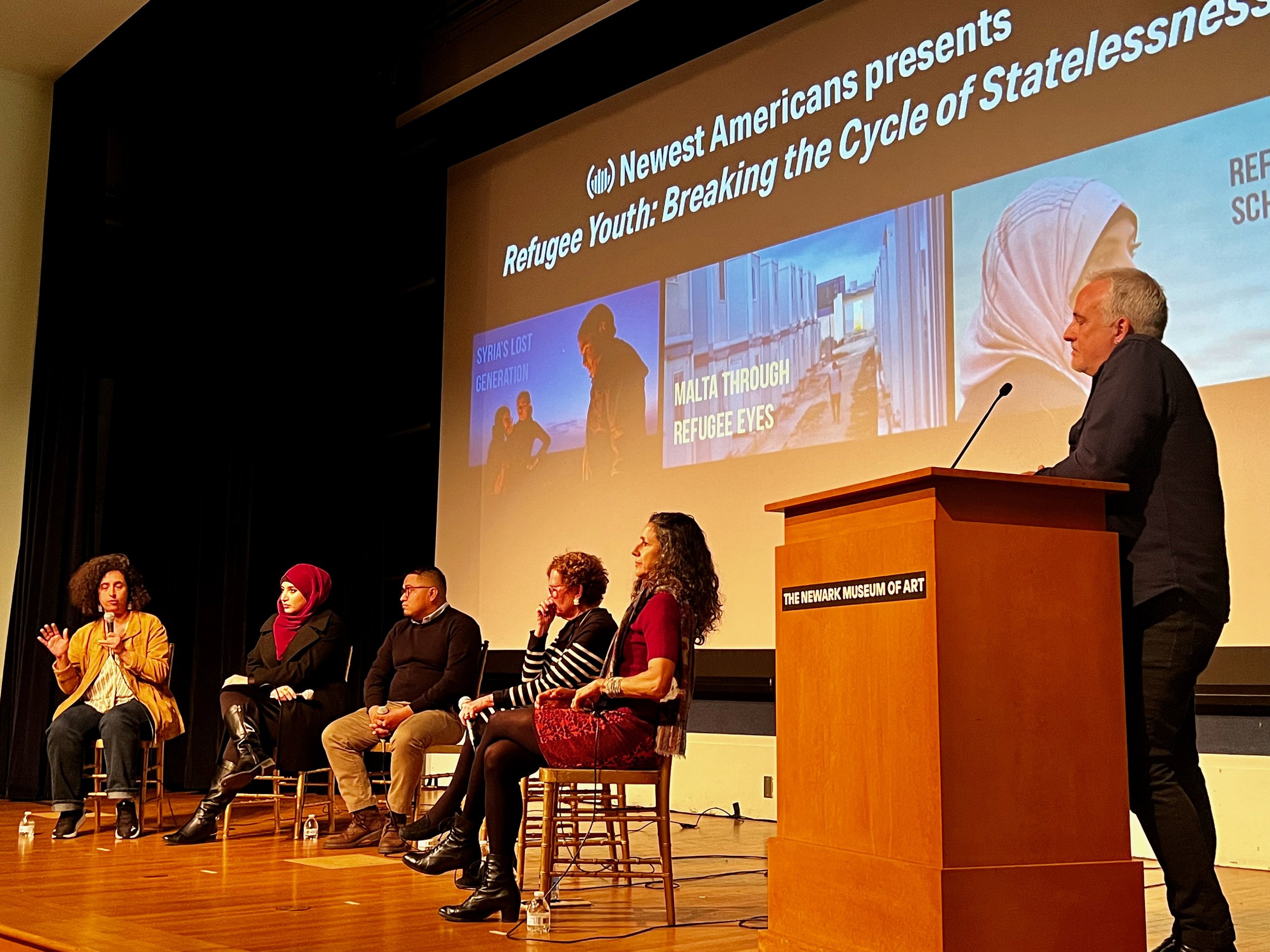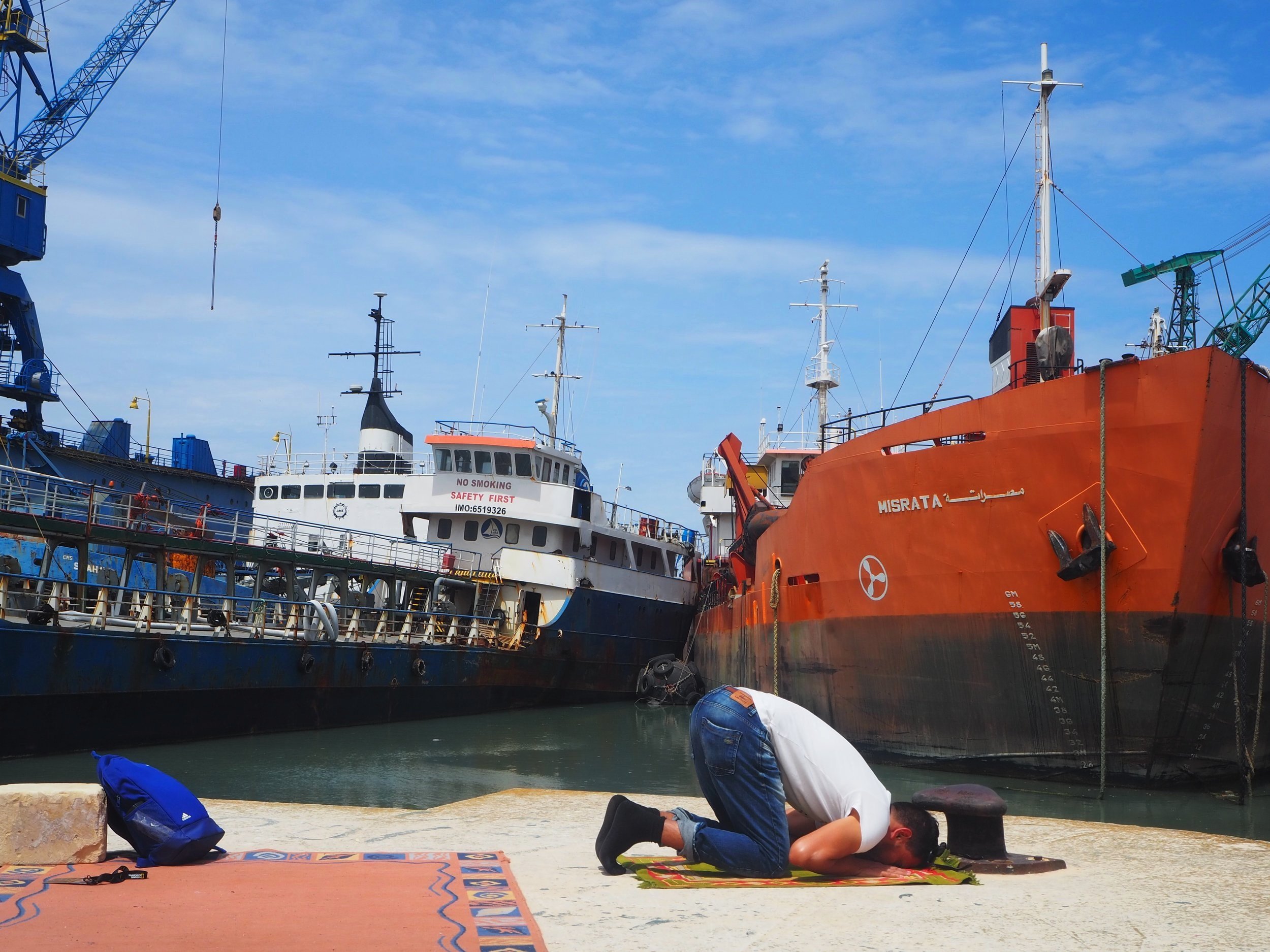Three Films in Conversation
April 10, 2023 • Written by Julie Winokur
As a filmmaker, I always want individual stories to address global phenomena, but there’s just so much a single narrative can reveal. Each story is a slice of pie and I rarely get to indulge in the whole because I’m forced to move on to the next and the next and the next project. Last week I had the rare opportunity to screen three of our films in one program at the Newark Museum of Art. Stories I had left in the rearview mirror suddenly breathed new life and reminded me of the dynamic nature of storytelling.
The three films document young refugees living across the globe and they span nearly a decade, starting with the Syrian Civil War. Each film captures a different stage of displacement: newly exiled (Jordan), stranded in limbo (Malta), resurrected into a new life (New Jersey). They were never intended as a series. They vary in tone, style, visual fidelity and approach. But despite these differences, they were suddenly in conversation with each other, creating a new narrative that was both timeless and timely. They became a three act play, infusing new meaning into older stories by offering the clarity of hindsight and the energy of foresight.
Photo by Ed Kashi
...the lens through which we processed what was happening in the room had all to do with the portal through which we had entered.
The goal of the screening was to engage people in solving a seemingly intractable problem: How to break the cycle of statelessness for refugee youth. With the announcement this year of WelcomeCorps, a federal program to enable ordinary citizens to host refugee families, people are newly energized to become part of the solution. For many youth, a temporary tent at a refugee camp becomes a permanent structure that cages them for generations. Less than 5% of young refugees achieve higher education, relegating them to be underemployed and unable to flourish. Our screening was focused on placing refugees on the Yellow Brick Road to higher education.
Diya Abdo of Every Campus a Refuge speaks after the film screening
(Photo by Cat McGrath)
The intensity of the films hung heavy in the room when the lights came up. They became the sobering backstory for a future-oriented discussion, which was kicked off by Diya Abdo, founder of Every Campus a Refuge (ECAR). Abdo’s stellar organization rallies colleges and universities to host refugee families. She has put into practice a way to deploy existing resources across the country to help over 300 refugee families to date. Her energy resurrected the audience from the somber despair to spirited problem solving.
The final film, Refugee Scholar, features Hourie Tafech, a third generation Palestinian refugee from Lebanon who recently received her PhD at Rutgers-Newark. She pleaded that, “I don’t like if the documentary is posed as a success story and this is the only way out, like I’m an extraordinary person. This is not the case. The message behind the documentary is that access to higher education could change lives. It was the tipping point for me.” As a result, she said, her family is more financially secure and she can support her brother’s college education. Help an individual and you can help a whole community.
Photo by Anca Micodan/National Geographic Photo Camp
Despite this glimmer of optimism, a substantive part of the conversation revolved around the fight for scarce resources. This is a frequent concern in Newark, where so many people feel left behind. ‘Why should we help them when we have so much trauma and suffering here already?’ While we all agreed that the tent needs to widen, I was reminded that the lens through which we processed what was happening in the room had all to do with the portal through which we had entered. One person who spoke was dedicated to helping foster youth; another, a traumatized Newark resident; another, an aspiring immigrant student who couldn’t get into college and had to extricate from a trauma-filled at home. Not only had we screened three single narratives, we had assembled with a hundred different sets of ears. While I always need to narrow the scope of our films’ storylines, the interpretations are infinite.
The stories are the magnet, the impetus for shared dialogue and a reason to convene.
As I sat on stage with Hourie, Diya and Nancy Kantor, the Chancellor of Rutgers-Newark, a whisper of Imposter Syndrome crept into my head. I am no expert in refugee resettlement and I have never experienced displacement. In the current moment of identity politics, what qualifies me to tell this story and why are my opinions relevant? This is a conversation I have daily with colleagues in the media sector. I am a mere messenger for complicated stories. My humanity and my ear are my assets. It is up to the consumers of our media to fill in the rest.
Throughout the discussion I was reminded that the films we produced had provided a rationale to come together in that room for a vibrant exchange of ideas. The stories are the magnet, the impetus for shared dialogue and a reason to convene. That is enough. The discourse and problem solving—the real value—is what happens in the discussions they spark.







